DPAN Presenter Prize awarded to Thijmen Ligthart
Thijmen Ligthart received the DPAN presenter award for his presentation about granulovacuolar degeneration bodies that mark neuronal resilience to tau-induced disruption of protein synthesis.

Thijmen Ligthart received the DPAN presenter award for his presentation about granulovacuolar degeneration bodies that mark neuronal resilience to tau-induced disruption of protein synthesis.

Networks of nerve cells in our brain process information at high speed. Some cells transfer more than 100 signals per second to the next cell in the circuit by contact points between them, the synapses. Neuroscientists from the CNCR discovered how mobility of molecules on the receiving side of synapses support information processing.
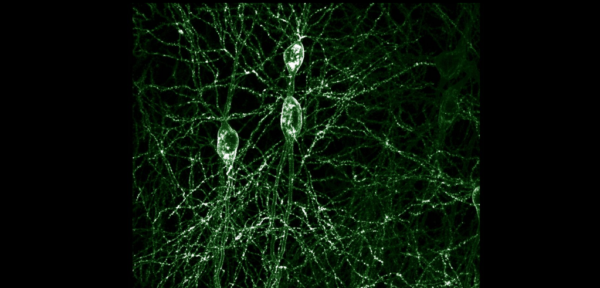
The Hersenstichting has awarded prof. dr. Wiep Scheper of the Molecular Neurodegeneration lab at FGA with €500.000 to follow up their research on Granulovacuolar degeneration bodies (GVBs). GVBs are found in a subset of neurons with early tau pathology in the brain of persons with Alzheimer’s disease and tau-related frontomporal dementias.

Max Koppers (FGA) was awarded a VIDI grant from NWO for his project ‘Local regulation of brain connectivity’ to investigate the role of mRNA localization and local protein production in synapse formation.

Altered lipid metabolism in the brain is a key feature of many neurodegenerative diseases, yet comparing lipid data across studies has remained a challenge. To address this, Femke Feringa and Sascha Koppes-den Hertog from the dementia discovery team of Rik van der Kant (FGA-CNCR) together with the lipidomics and metabolomics team of Martin Giera at the LUMC in Leiden have developed the Neurolipid Atlas (available at neurolipidatlas.com).

Stichting ParkinsonFonds awarded €355.710,00 to Prof. Ruud Toonen (FGA & Neurospector) to advance research on genetic forms of Parkinson’s disease.
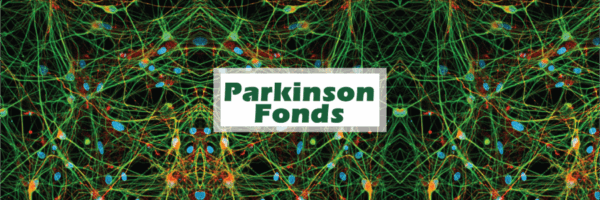
A new study by Fiona Murphy & team (FGA/MCN) on how different components of the secretion machinery work together to bind/recruit key lipids, is now published in Journal of Cell Biology.

We are thrilled to announce that Prof. Dr. Matthijs Verhage, head of the department of Functional Genomics and a founder of the European STXBP1 Consortium (ESCO), has been selected as the recipient of the 2025 Innovative Research Award by the STXBP1 Foundation.

In a new study published in Science Advances, Dr. Danai Riga and colleagues explored how the brain’s built-in peptidergic systems help regulate its response to stress
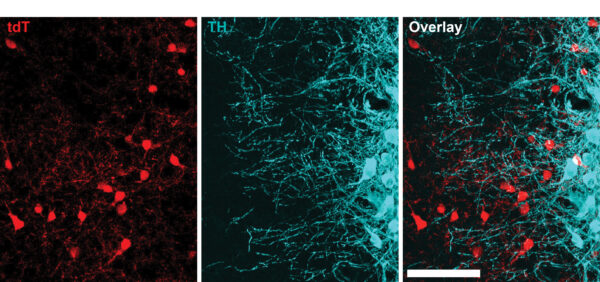
On Wednesday, May 14, Queen Máxima of the Netherlands officially opened the ADORE Research and Diagnostics Centre in Amsterdam. This cutting-edge facility, an initiative of Amsterdam UMC, brings together Neuroscientists and Oncology researchers, making it the largest onco-neuro campus worldwide.
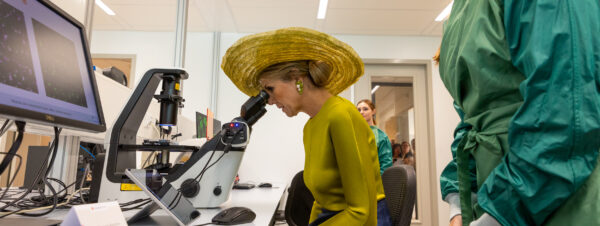
The existing HIV medication Efavirenz may potentially also be effective for Alzheimer’s patients by lowering cholesterol in the brain. A clinical trial to test this led by Dr. Rik van der Kant, team leader at the Dementia Discovery, started in fall 2024 and now the first patient has completed treatment. Participants are still being recruited.

Ruud Toonen has officially delivered his inaugural lecture as Professor of Neuroscience and Knowledge Utilization at VU Amsterdam. His lecture, held on January 31, 2025, was part of the symposium Perspectives on Knowledge Utilization in Life Sciences at VU Amsterdam.

Alzheimer Nederland has awarded Jan van Weering a Major Award to investigate how neurotrophic signaling and mitochondrial function can be modulated to restore neuronal network function in neurons with tau pathology.
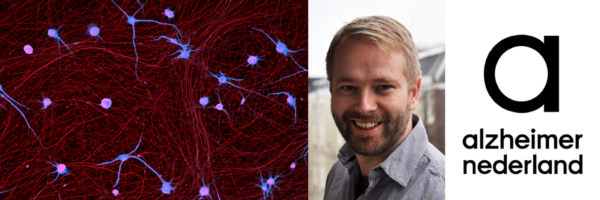
Matthijs Verhage and Iwan de Esch are organizing a symposium on January 31st, preceding the inauguration lecture of Dr. Ruud Toonen, professor of Neuroscience and Knowledge Utilization. The symposium is free and open to the public, targeting students, life science professionals, and individuals working in the medtech/biotech sector.

Amélie Freal (FGA) was awarded a Vidi grant from NWO for her project “Neurons in balance” to investigate the mechanisms controlling axon initial segment plasticity and how this regulates network activity homeostasis.

Danai Riga will join the FGA as a new team leader, after being awarded the Amsterdam UMC fellowship. The fellowship (750K) will support her in establishing her independent research line and expand her research group at the CNCR.
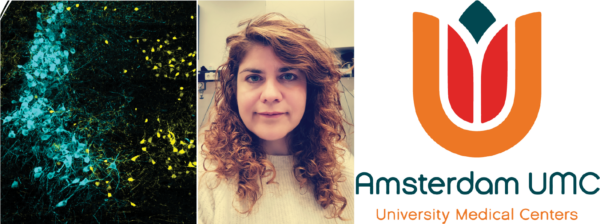
During a regular Monday morning lab meeting, Kim was surprised by a team from Alzheimer Nederland with the Alzheimer Nederland thesis prize 2024. She was applauded for the impressive manner in which she was capable to explain her high quality fundamental scientific work performed in the Scheper lab to a lay audience.
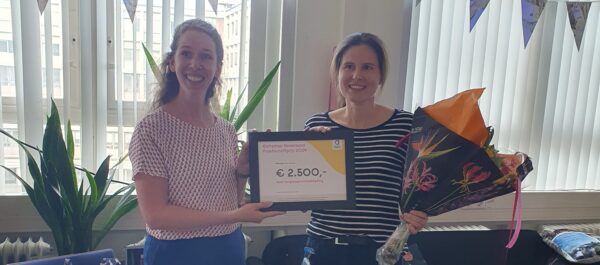
Max Koppers (FGA) was awarded an ERC Starting Grant by the European Union for his “RNA.ORG” project to investigate the molecular mechanisms that coordinate mRNA capture and translation in neurons.
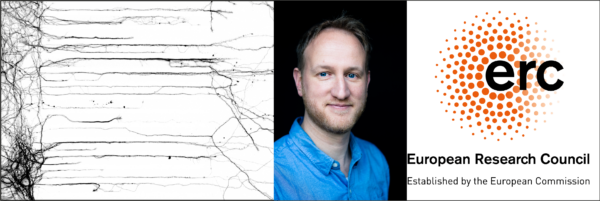
On Saturday June 8, 2024, our teams successfully biked the European Million Dollar Bike Ride, a fundraising event to raise money for research into STXBP1-related disorders! Together they raised more than 12.000 euros.

Dr. van der Kant, group leader of the Dementia Discovery Group at the CNCR, has received a $500.000 award to study how lipids contribute to primary Tauopathies such as progressive supranuclear palsy (PSP) and frontotemporal dementia (FTD).

Dr. Scheper is internationally known for her studies on the role of proteostatic stress mechanisms in the pathogenesis of neurodegenerative diseases. She now receives further recognition for her work with a professorship.

This multidisciplinary work led by Marieke Meijer (Amsterdam UMC - FGA) describes how tomosyns limit synaptic strength at rest to equalize synaptic transmission during activity.

A collaboration between CNCR-FGA and University of Heidelberg shows that protein instability is the generalizable, primary cause. A new prediction tool outperforms all existing predictors. The paper is out now in Biological Psychiatry.
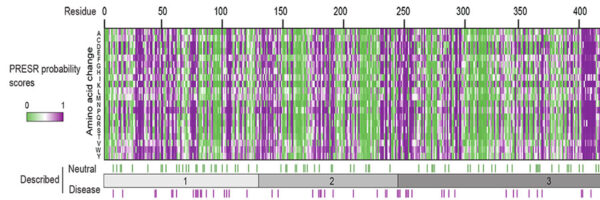
Neurotransmitter release is less synchronized in SYT1-associated disorder, according to a new study from the Cornelisse lab.
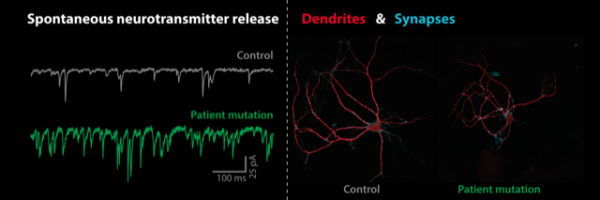
The SynGO consortium, consisting of >20 expert labs worldwide and coordinated by CNCR, brings together scientific knowledge about synapses & provides online analysis tools. Their new release contains >1600 annotated synaptic genes.
The European STXBP1 COnsortium (ESCO, www.stxbp1eu.org) was established in 2021 with eight partner countries in the EU, coordinated by VU/AUMC. All partners have now signed the consortium agreement and ESCO secured its 1st funding.
A new study led by Amelie Freal (FGA) describes mechanisms controlling Axon Initial Segment plasticity, revealing distinct and dynamic pools of sodium channels that adjust neuronal excitability
Amélie Freal (FGA) was awarded an ERC Starting Grant by the European Union for the “PLaisTICITY” project to investigate mechanisms underlying Axon Initial Segment plasticity
Kim de Kleijn (The Candidate Center/AUMC/FGA) received the ZonMW Dementia Fellowship (3 years) to set-up an independent research line to study the TREM receptor family and its relevance for microglia functioning in context of Alzheimer’s disease.
Femke Feringa (FGA) received a ZonMW VENI grant to develop her independent research line on how the Alzheimer risk mutation APOE4 contributes to senescence (cell aging) in human astrocytes generated from induced pluripotent stem cells.
During the Dutch Neuroscience Meeting, Kim Wolzak, PhD student in Wiep Scheper’s research group, received the Top Paper Award 2023 from the Neurofederation.
The STXBP1 team (FGA) joined 150 other researchers, healthcare professionals, industry representatives, and patient families and -advocates from all over the world for the first European meeting fully dedicated to STXBP1
The Dutch Research Council (NWO) has awarded an ENW-M2 open competition grant of 730 k€ to CNCR researcher Wiep Scheper (PI team) to study the role of de-ubiquitinating enzymes in tau-induced dysfunction of the neuronal auto- and endo-lysosomal system. In this multidisciplinary project Scheper PI of the Molecular Neurodegeneration group teams up with ubiquitin signalling expert Aysegul Sapmaz (LUMC, Leiden).
Max will start at FGA on March 1st, building a team aimed at understanding the molecular mechanisms and functional relevance of mRNA trafficking and local translation in neuronal subcellular compartments in health and disease.
Irune Guerra San Juan and Matthijs Verhage (FGA) became partners in an international consortium that designs and tests oligonucleotides to suppress poison exon insertion and restore full length Stathmin 2 expression in sporadic ALS
Van der Kant and the VU Medical Center receive funding for unravelling the associative link between exercise and lipid metabolism in prevention against Alzheimer.
In a study published in Molecular Psychiatry, Jessie Brunner, Hanna Lammertse and Annemiek van Berkel (FGA) teamed up with Sophie van der Sluis (CTG) and the proteomics facility (MCN) to optimize statistical power for iPSC-based study designs.
Amelie Freal, head of the team, joined CNCR earlier this year and is developing an independent research program on axon initial segment biology at FGA.
The PreSSAD consortium of 6 EU partners incl. CNCR (Matthijs Verhage, FGA) was awarded (JPND/Memorabel, pre-diagnosis disturbances in neurodevelopmental disorders) and will start Nov 1st with IPSC-based models of presynaptic degeneration
The performance of CNCR researchers Rachel Brouwer, Loek van der Kallen and Mahesh Karnani has been evaluated positively and we are happy to announce that they are rewarded a permanent employment contract.
Rik van der Kant, Natalia Goriounova and Priyanka Rao-Ruiz, researchers at the Center for Neurogenomics & Cognitive Research at the Vrije Universiteit Amsterdam, have been awarded by the Dutch Research Council (NWO) with a Vidi grant worth 800,000 euros.
A new study by Kim Wolzak and colleagues from the team of Wiep Scheper reveals how neurons shift their translational control to ensure proteostatic resilience during ER stress. The study was published in The EMBO Journal.
On Saturday 11th of June we successfully biked the Dutch-Belgian million dollar bike ride, a fundraising event to raise money for research towards STXBP1-Encephalopathy!
We bike together to raise money for research towards new treatments for the rare disorder STXBP1 Encephalopathy!
An international consortium analysed DNA from more than 300,000 people with and without the disorder. The SYNGO consortium, coordinated by CNCR, performed the analyses of synaptic genes. The study is published in Nature on April 11th
Guus Smit and Matthijs Verhage obtained funding to coordinate expert annotation of the synaptic protein interactome, with the goal to curate protein-protein interactions implicated in autism.
Irune Guerra San Juan (FGA) & team show neuropathies may develop in ALS patients when a poison exon in Stmn2 mRNA is not excised due to TDP43 dysfunction. The study is a collaboration with Harvard University published in Neuron on March 15th
The SYNGO consortium, coordinated by CNCR, enters a new phase to annotate/curate protein-protein interactions in the synapse with two more years of funding for the Amsterdam office.
This February, the Orphan Disease Center challenged researchers worldwide to share social media posts about the rare disease they are working on . The three most creative and popular posts were selected as winners on Feb.28th, Rare Disease Day 2022. The CNCR STXBP1 team is one of the winners
New consortium consisting of researchers from six Dutch knowledge institutions, coordinated by the CNCR and Radboud UMC, has been awarded with a grant of 4 million euros from ZonMW, to develop new research methods to improve treatment for neurodevelopmental disorders.